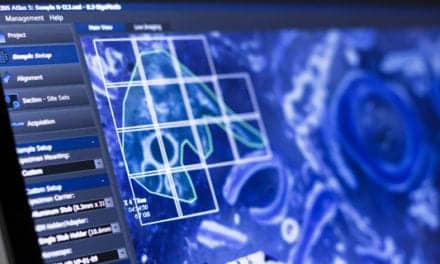Summary: Immunovia’s CLARITI study validates its next-generation test for early-stage pancreatic cancer, achieving 78% sensitivity and 94% specificity, marking a critical step toward early detection and improved patient survival.
Takeaways:
- High Accuracy in Early Detection: The test demonstrated 78% sensitivity and 94% specificity for detecting stage 1 and 2 pancreatic ductal adenocarcinoma (PDAC), with even higher accuracy in recently collected blood samples.
- Superior to Existing Biomarkers: Immunovia’s test outperformed the FDA-approved CA19-9 biomarker, with 14 percentage points greater sensitivity (p<0.001) while maintaining comparable specificity.
- Impactful Clinical Validation: The study, involving 1,066 samples from high-risk populations, represents the largest clinical validation study of its kind and positions the test for U.S. market launch in 2025, pending regulatory and reimbursement approvals.
Pancreatic cancer diagnostics company Immunovia announced the successful completion of the CLARITI study, (Clinical Validation of Next-Generation Test for Early-Stage Pancreatic Cancer) to detect early-stage pancreatic ductal adenocarcinoma (PDAC).
Detecting Pancreatic Cancer Early
In the study of over 1,000 patient samples, the test achieved the primary endpoint, exceeding the predefined accuracy criteria and marking a critical milestone in Immunovia’s mission to increase patient survival through early detection of pancreatic cancer.
Key findings from the study include:
- High accuracy: The test demonstrated sensitivity of 78% and specificity of 94% in detecting stage 1 and 2 PDAC. In patients aged 65 and older, sensitivity was 80% and specificity was 91%.
- Superior performance to CA19-9: Immunovia’s next-generation test was 14 percentage points more sensitive (p<0.001) than CA19-9, an FDA-approved biomarker for monitoring pancreatic cancer, while maintaining equivalent specificity.
- Early detection: Immunovia’s next-generation test was equally accurate in detecting both stage 1 and stage 2 pancreatic cancers, reinforcing its strength as an early detection test.
- Improved accuracy with recently collected samples: Test performance was higher in blood samples collected within the last five years, with sensitivity of 82% and specificity of 95%. (Due to the rarity of stage 1 and 2 pancreatic cancer samples, 56% of the pancreatic cancer samples included in the study were older than 5 years.) In real-world clinical use, samples will be tested within days of collection and the test would be expected to show even greater accuracy.
Clinical Validation of Next-Generation Test for Early-Stage Pancreatic Cancer
The CLARITI study utilized blood samples from 18 of the world’s leading pancreatic cancer centers, representing the largest reported clinical validation study for a pancreatic cancer blood test in a high-risk patient population. Among the 1,066 samples analyzed, 202 were from patients with stage 1 and 2 pancreatic cancer.
The remaining 864 were control samples from individuals at high risk for pancreatic cancer, primarily due to family history or genetics. Using high-risk controls in CLARITI made it a more rigorous and challenging assessment of test accuracy, unlike many other validation studies that use blood samples from healthy, low-risk controls. All CLARITI study samples were obtained from patients other than those used in prior development studies.
“This study validates the high accuracy of the Immunovia test in detecting stage 1 and 2 pancreatic cancer in a challenging high-risk population. The increase in accuracy for samples collected more recently is very encouraging, suggesting we could expect even better accuracy when the test is used clinically on fresh blood samples,” says Rosalie Sears, PhD, professor of Molecular and Medical Genetics and co-director Brenden-Colson Center for Pancreatic Care at Oregon Health and Science University and an investigator on the study.
Further Reading
“This marks a pivotal milestone for Immunovia in our quest to transform the pancreatic cancer landscape. Our next-generation test clearly has the accuracy to address the critical need for early detection,” says Jeff Borcherding, CEO and president of Immunovia. “We are deeply grateful to the pancreatic cancer experts and clinical leaders who partnered with us on this large, rigorous, and challenging study. These compelling results position Immunovia as a leader in the early-detection market and bring us closer to fulfilling our mission of improving pancreatic cancer survival worldwide.”
Based on the results announced, Immunovia says ot remains on track to introduce its next-generation test to the U.S. market in the second half of 2025.
In parallel, Immunovia will also conduct additional clinical studies to assess the test’s accuracy, clinical impact and economic value across different high-risk patient groups. The studies will continue throughout 2025 and will support regulatory submissions and efforts to secure test reimbursement.





